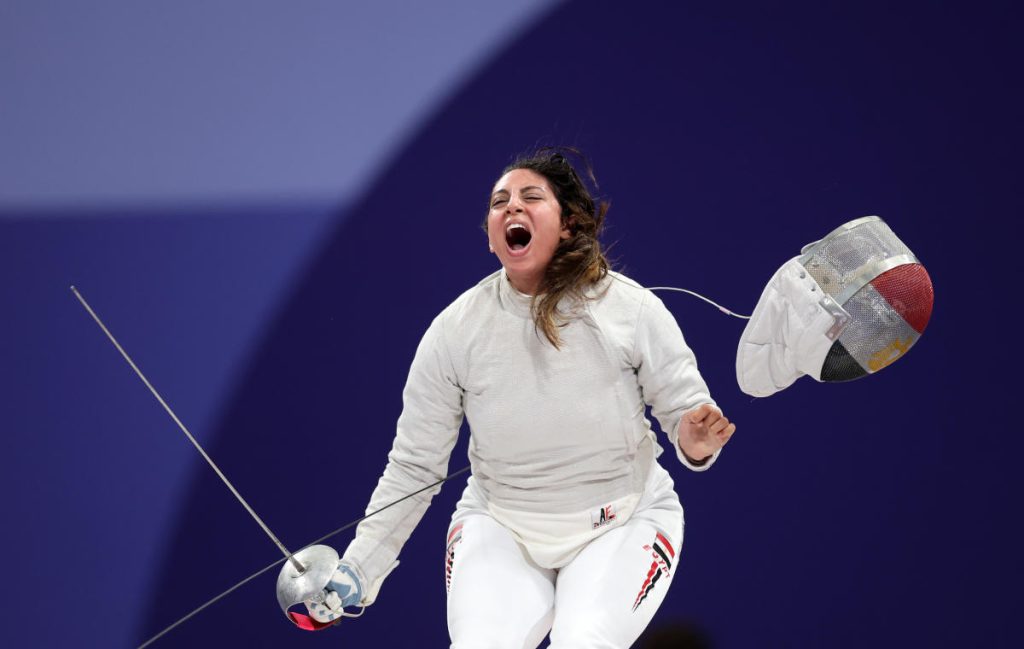Egyptian fencer Nada Hafez made headlines during the Paris Olympics when she revealed that she competed while seven months pregnant. Despite her pregnancy, Hafez managed to win her first-round match in the women’s saber competition against American Elizabeth Tartakovsky. She ultimately lost in the round of 16 to Korea’s Jeon Hayoung, but her performance was celebrated as a remarkable achievement.
Hafez, who had previously competed in the Rio and Tokyo Olympics without success, expressed the importance of highlighting the strength and resilience of Egyptian women through her participation in the games. She emphasized the challenges she faced both physically and emotionally while balancing her pregnancy with her athletic career. Hafez’s decision to compete while pregnant sparked admiration and support from many fans and fellow athletes.
Despite receiving some criticism from a callous commenter who questioned her decision to compete while pregnant, Hafez received overwhelming support from the majority of responses to her announcement. Many praised her for setting a positive example for other women by showcasing her dedication and perseverance in pursuing her passion for fencing while navigating the challenges of pregnancy. Hafez’s story resonated with fans around the world, who applauded her determination and courage.
Hafez’s victory over Tartakovsky, marked by a jubilant celebration, was a memorable moment in her Olympic journey. The fencer’s resilience and determination to compete at the highest level, regardless of her pregnancy, inspired admiration and respect from spectators and fellow athletes alike. Her performance in the competition highlighted the strength and perseverance of women in sports, serving as a powerful reminder of the capabilities and achievements of female athletes.
By competing at the Paris Olympics while seven months pregnant, Nada Hafez defied expectations and challenged stereotypes about women in sports. Her decision to participate in the games showcased her commitment to her athletic career and her determination to overcome obstacles in pursuit of her goals. Hafez’s story serves as a powerful example of what women are capable of achieving, both in sports and in life, when they are supported and empowered to pursue their dreams.
In the end, Nada Hafez’s participation in the Paris Olympics while pregnant was a testament to her strength, resilience, and dedication to her sport. Her journey inspired admiration and support from fans around the world, who celebrated her achievements and applauded her for breaking barriers and challenging norms. Hafez’s story will be remembered as a remarkable moment in Olympic history, highlighting the indomitable spirit of female athletes and the power of perseverance in the face of adversity.


